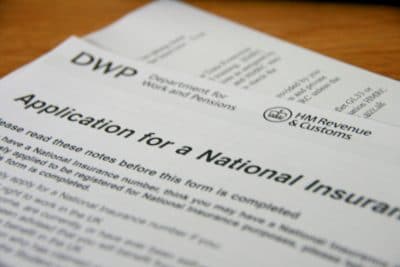How to Deal with Insurance Companies
 If you are like most people, the last thing you want to do is call your insurance and make a claim after your accident. The process is long and drawn out, and once you finally get past the machine answers, the people you talk to are not always on your side. Insurance companies and claims are designed to seem overwhelming and confusing to discourage you. Insurance companies want you to settle on whatever they offer, rather than what is best for you. The best way to deal with an insurance company may be to hire an attorney who is familiar with insurance law and who can guide you through the claim process. Whether if you are trying to deal with the insurance company on your own, or if you have hired a lawyer and are just doing some preliminary research, we have provided some advice and tips below on how to work with an insurance company after you have been in an accident.
If you are like most people, the last thing you want to do is call your insurance and make a claim after your accident. The process is long and drawn out, and once you finally get past the machine answers, the people you talk to are not always on your side. Insurance companies and claims are designed to seem overwhelming and confusing to discourage you. Insurance companies want you to settle on whatever they offer, rather than what is best for you. The best way to deal with an insurance company may be to hire an attorney who is familiar with insurance law and who can guide you through the claim process. Whether if you are trying to deal with the insurance company on your own, or if you have hired a lawyer and are just doing some preliminary research, we have provided some advice and tips below on how to work with an insurance company after you have been in an accident.
Table of Contents
Advice that You Can Use
- Don’t assume that the adjuster has your best interest in mind: Whether the insurance company that is covering the costs of your injuries is your own insurance company or the insurance company of the at-fault person, you have to remember that the companies’ first priority is to take care of themselves. They are businesses and they have to make a profit to keep going. This profit is made by keeping the amount that they pay out in claims and settlements at a minimum.
- Know your rights and the details of your policy: Your adjuster is not required to inform you of all of your rights and of all of the “ins and outs” of your policy. You should take the time to read your policy statements and to know what level of compensation you should receive.
- Have your medical provider forward your bills directly to the insurance company: This can help the insurance company to pay the bills on time and to keep your bills from being sent to a collector or from affecting your credit.
- Find out what portion of the payment you are responsible for: Even though your insurance company may be paying your health experiences, you may have to reimburse them with a portion of the money you recover from your personal injury case.
- DON’T FEEL GUILTY: We know that you don’t want to make an insurance claim, especially when that may raise someone else’s premium when you deal with the at-fault person’s insurance company. You should not feel guilty. Remember that you need help in paying your medical costs. Either you or the at-fault person signed an agreement with the insurance company saying that you would pay them monthly if they would help you in your time of need. Don’t let the insurance company make you feel bad about asking for what you deserve.
- Don’t Rush: You shouldn’t feel like you need to settle for the insurance company’s first offer. Don’t rush to accept a settlement or settle for less than the compensation you need and deserve. It may take more time than you planned on, but that extra time can make a significant difference in the amount of compensation you receive.
- Prevent Under-Coverage: Make sure you are fully covered in every area of your life where insurance is necessary. You should find a limit that will adequately cover you through whatever trouble life may throw at you. It is easier to receive full compensation from a policy that you are already paying for than trying to receive compensation above what you are insured.
While this list offers some helpful advice, we hope you remember that every case is different and every insurance company differs in how it handles claims. These are simple and basic reminders on how you should act when dealing with them. If you feel like you can’t handle them on your own, please contact us at Christensen & Hymas, and we will take that burden off of your shoulders.
Photo courtesy of Pete and Flickr. The image is in the public domain.
Free Consultation
Learn your Rights. Get Answers. Free.
